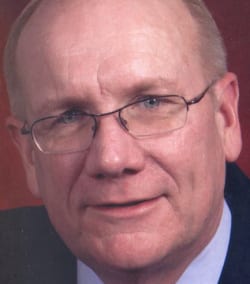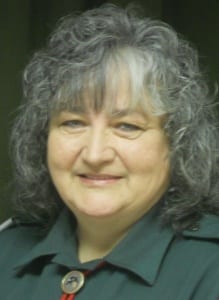Council Advancement Committee
The committee members include the Chair, Vice Chair, the chairs of the 4 district advancement committees, MB Dean Coordinator, Special Needs Liaison, Camp Advancement Liaison and several members-at-large. These volunteers represent a breadth of experience, both in Scouting and professionally. They cooperate with the other program function elements — outdoor programs, activities and civic service and training —and with the membership, finance, and unit-service functions. The committee is supported by a council professional staff advisor.
Committee Responsibilities
The committee is responsible for implementing and facilitating advancement and processing most special awards and recognitions. This is done according to national procedures and local practices under the direction of the council executive board. The council advancement committee falls under the authority of the Vice President for Program Impact.
We follow BSA’s official source for administering advancement, the Guide to Advancement. For situations not specifically covered in that document, we make decisions based on the aims and mission of the Boy Scouts of America, the Scout Oath and Scout Law and common sense. Advancement is nothing more and nothing less than a method of meeting these goals.
The committee oversees advancement for: Cub Scouts, Scouts BSA and Venturers.
Unit Eagle Mentor and Coach Training
Traditionally, knowledgeable unit leaders often work with Life Scouts as informal Eagle Mentors to encourage and advise Eagle candidates on their trail to Eagle.
Eagle Advancement Information
For more information, please see the PPC Eagle Advancement Page
Who Approves Scouts BSA Advancement?
In Scouts BSA, both adult and youth leaders approve advancement. This permits greater emphasis on standards and more consistency in measurement, but it also places additional importance on teaching and testing. As Scouts work with one another, learning takes place on both sides of the equation as they play teacher and student in turn. Parents are involved at home encouraging, mentoring, and supporting, but they do not sign for rank advancement requirements unless they serve as registered leaders.
Providing a troop program supporting advancement
Scouts advance from the rank of Scout to Eagle by participating with their patrol and troop, with their leaders, and on their own. Well-delivered programming will take youth to First Class in their first year of membership and then to Star rank the following year. The New Scouts Path to First Class is a council-provided resource to help troops develop a program (and track progress) for the transition of youth from the Cub Scout program to the Scouts BSA program and retain them through an advancement program that provides new Scouts the opportunity to achieve the rank of First Class within a year.
Four Steps in Scout Advancement
Advancement is a simple matter when the four steps outlined below are observed and integrated into troop programming.
- The Scout Learns – Scouts learn by doing, and as they learn, they grow in their ability to do their part as a member of the patrol and troop. As they develop knowledge and skill, he they are asked to teach others; and in this way they learn and develop leadership.
- The Scout Is Tested – The Scoutmaster authorizes those who may test and pass the Scout on rank requirements. These might include patrol leaders, the senior patrol leader, an assistant unit leader, a troop committee member, another Scout, or the Scoutmaster. Merit badge counselors teach and test the Scout on requirements for merit badges.
- The Scout Is Reviewed – After completing all requirements for a rank, the Scout meets with a board of review. For Tenderfoot, Second Class, First Class, Star, and Life ranks, and Eagle Palms, members of the unit committee conduct the meeting. The Eagle Scout board of review is held in accordance with National Council and local council procedures.
- The Scout Is Recognized – When the board of review has approved advancement, the Scout deserves recognition as soon as possible. This should be done at a ceremony at the next unit meeting. The certificate for the new rank may be presented later, during a formal court of honor.
It is important to remember that, in the end, a badge is not as much a reward for what the Scout has done, but recognition of what the young person is able to do and how he or she has grown.
Scouts BSA Advancement Resources
- University of Scouting overview of the Guide to Advancement: Powerpoint
- University of Scouting course on District Advisor Eagle Project Approvals.
- University of Scouting: PDF of PPC Unit Eagle Mentor Training 2022 with notes. Original powerpoint: PPC Unit Eagle Mentor Training_2022.
- Introduction to Advancement for Parents 2019 presentation from Merit Badge Introduction Workshop Nov 2, 2019.
- REMINDER ON TWO-DEEP LEADERSHIP: In May 2018 National released new Youth Protection policies and emphasized that “Two registered adult leaders 21 years of age or over are required at all Scouting activities….” The Guide to Advancement (Section 9.0.2.14) is clear “All Eagle Scout service projects constitute official Scouting activity and thus are subject to Boy Scouts of America policies and procedures. Projects are considered part of a unit’s program and are treated as such with regard to policies, procedures, and requirements regarding Youth Protection, two-deep leadership, etc.”
- Policy and implementation for special 2019 Eagle extension requests for youth over 16 but not yet 18 years of age on February 1, 2019 interested in earning the Eagle Scout rank. PDF
- February 2019: New Guide to Advancement released. Details of updates in section 1.0.3.0.
- DRAFT: Summer Camp Merit Badge Requirements…what can be done in camp and what to bring to get credit.
- New Scout’s Path to First Class: A Troop Program presentation from University of Scouting, December 5, 2020.
- October 24, 2017: New Eagle Palm requirements are applied retroactively. Procedures for Eagle Palms earned by the Eagle Board of Review date here.
- August 1, 2017: Revised campout requirements for First and Second Class go into effect.
- Webelos & Arrow of Light Required Adventures…Preparation for Scouts BSA
- Cub Scout Program Updates for Boy Scout Leaders.
- The Merit Badge Program and Blue Card instructions
Cub Scout Advancement
- 19 Cub Scout Elective Adventures to be Retired Effective May 31, 2022
- Patriots’ Path Council Webelos to Scout Transition Plan
- Adventures in Scouts BSA: A guidebook for parents/guardians to Cub Scout crossovers and new Scouts BSA
- Adventures in Cub Scouting: A guidebook for parents/guardians
- Cub Scout Shooting Sports Information
- Cub Scout Leader Position-Specific Training
- Cub Scout Connections: Finding Common Themes in the New Cub Scout Adventure Program —The purpose of this guide is to show the connections and common themes among Adventures across ranks to encourage the continuation of pack-level and multi-age programming as well as assist in the planning of events such as camping/outdoor programs and belt loop events.
- Webelos & Arrow of Light Required Adventures…Preparation for Scouts BSA.
- Cub Scout Program Updates for Scouts BSA Leaders.
The Role of the Pack Committee
The responsibility for Cub Scout advancement administration belongs to a pack committee. The pack committee collects den advancement reports, compiles and maintains them in pack records, reports advancement to the council using Internet Advancement, purchases awards and ensures their presentation, and helps plan and facilitate various ceremonies. The committee may also recommend special pack activities that lead to greater levels of achievement.
Who Approves Cub Scout Advancement?
A key responsibility for den leaders is to implement the core den meeting plans as outlined in the Den & Pack Meeting Resource Guide, No. 34409. For Wolf, Bear, and Webelos advancement, den leaders take the lead in approving requirements, with help from their assistants and parents or guardians who are asked to assist at meetings. Parents sign for requirements that, according to meeting plans and instructions in the handbooks, take place at home. For the Bobcat trail and Tiger Cub achievements, parents (or adult partners) should sign in the Cub’s handbook; the den leader then approves as progress is recorded in the den’s advancement record.
Standard is “Do Your Best”
Advancement performance in Cub Scouting is centered on its motto: “Do Your Best.” When a youth has done this—their very best—then, regardless of the requirements for any rank or award, it is enough; accomplishment is noted. This is why den leaders, assistants, and parents or guardians are involved in approvals. Generally they know if effort put forth is really the Cub Scout’s best.
Cub Scout Ranks
The Cub Scout program is centered primarily in the den, the home and neighborhood, but often takes place in the outdoors. It leads to advancement through six ranks. More on Webelos advancement.
- Bobcat badge is earned first, before all other ranks. The trail to Bobcat involves learning the Cub Scout Promise, Law of the Pack, and signs and symbols of Cub Scouting, with an introduction to Character Connections®. After earning the Bobcat rank, new members begin work on the rank appropriate to their age: Tiger Cub, Wolf, Bear, or Webelos.
- Tiger Cub rank is for youth who are in the first grade (or are 7 years old).
- Wolf rank is for youth who have completed first grade or are 8 years old.
- Bear rank is for youth who have completed second grade or are 9 years old.
- Webelos, an acronym for “We’ll Be LOyal Scouts,” is the rank for youth who have completed third grade or are 10 years old.
- Arrow of Light Award is Cub Scouting’s highest rank. It is earned after fulfilling the requirements for the Webelos badge, usually during the second-year Webelos program.
More Advancement Information
Advancement Committee

Council Advancement
Chairman
George Kamper
(201) 704-1000
District Advancement Chairs

Fishawack
Bob Weber
(908) 688-5016
Pioneer
Mike Fogarty
(908) 448-9783
Raritan Valley
Chandrashekhar “CV” Vyas
917-224-8320

Skylands
George Lippencott
(908) 413-8226
Committee Members

Member at Large
Bruce Benson
(973) 538-8325

Camp Advancement
Martha Kamichoff
(732) 827-2883

Merit Badge Dean Coordinator
Dan Ambrosiani
(973) 479-8615

Member at Large
Deb Reidmiller
(973) 903-6939

Special Needs
Mary Lynne Capen
(201) 230-4897

Council Advisor
Shawn Trimmer
(973) 765-9322 x229
(908) 448-9783
Venturing
Program Updates
New Venturing award requirements have been released. There handbook for Venturers, the Venturing Advisor Guidebook, and the Venturing Awards and Requirements Books are all new. The Program Updates page of Scouting.org will always have the most recent information on what is coming and when.
Venturing Program & Awards
Venturing is for young men and women who are 14 through 20 years old, or who are 13 and have completed the eighth grade. Its purpose is to build character, promote citizenship, and develop personal and mental fitness. Each Venturing crew is responsible for achieving these aims by designing a program that appeals to its members. The purpose of the Venturing awards program is to facilitate these four goals; provide a pathway for personal development; encourage learning; growth and service; and recognize high levels of achievement.
Advancement is accomplished when an active program emphasizes it and pays attention to the four steps of the process: preparation, learning, qualification, and recognition. Bronze, Gold, and Silver are the awards for the advancement track. Other awards can be earned.
For detailed requirements and more information on Venturing advancement or recognition, see the Venturer/Ranger Handbook, No. 33494; Sea Scout Manual, No. 33239; Quest Handbook, No. 33151; TRUST Handbook, No. 33154; and Venturing Leader Manual, No. 34655. Except in Sea Scouts, Venturers work on awards, not ranks, and they can choose to work along with others in a crew or go it alone.
They may also work simultaneously on the Bronze, Gold, and Silver awards; there are time-oriented requirements, but not between the earning of one award to the next. The Gold and Silver awards require a crew review. There is no council or district involvement, except perhaps guidance on best practices. All work for the awards must be completed before the member’s 21st birthday, but the review may be held after that date.
Program Updates
For official updates, please refer to the BSA Program Updates page.
The archive of older PPC advancement news and policy updates is below.
In 2021, all outdoor-related rank advancement requirements were reviewed and realigned based on guidance from the National Outdoor Ethics and Conservation Subcommittee. These adjustments will help more effectively build a Scout’s outdoor ethics knowledge and align with the information in the Scouts BSA Handbook and Fieldbook. The requirements now build in a logical way through the ranks, with Leave No Trace (LNT) and the Outdoor Code (OC) used as references throughout.
Beginning August 1, 2022, these minor modifications to the Scouts BSA requirements for the ranks of Scout through Star will take effect. Scouts may continue using the existing requirements for the rank on which they are currently working, or they may choose to use the new requirements. Scouts must use the new requirements once they advance to their next rank. On January 1, 2023, all Scouts must use only the new requirements.
The specific changes are detailed below.
In addition, beginning July 1, 2022, the Citizenship in Society merit badge becomes required for the rank of Eagle.
Finally, new videos were created to support “Personal Safety Awareness” (chapter 13) of the Scouts BSA Handbook. These can be used as an alternative to earning the Cyber Chip.
The specific changes can be found here.
Eagle Scout candidates will continue to use the current rank requirements until June 30, 2022 and will not be required to complete the new Citizenship in Society Merit Badge as long as they complete all of the current Eagle Rank requirements before July 1, 2022. They do not have to submit their final Eagle Scout application nor complete their Eagle Scout Board of Review prior to July 1, 2022 but must complete all current Eagle Scout requirements before then.
Starting July 1, 2022, Eagle Scout candidates will be required to complete all Eagle Scout requirements including the new Citizenship in Society merit badge.
As has been the practice, the Local Council will be responsible for verifying in the system the Eagle Scout candidate and their completion of the Eagle Scout requirements. The Local Council will determine those Scouts that meet all requirements before July 1, 2022, under the current requirements, and those Scouts that fall under the new Eagle Scout requirements as of July 1, 2022. [PPBSA note: The Eagle Board of Review is often described as the final Eagle Rank requirement…the policy above clearly means all other current Eagle Rank requirements must be completed before July 1, 2022.]
COVID-9 Modification roll back: Following February 28, 2022, all temporary changes made to Scouts BSA advancement requirements to address the COVID-19 pandemic will expire, so effective March 1, 2022 there will be a return to the standard rules for Scouts BSA advancement. This includes deferment of some swimming requirements for First and Second class, virtual activities for Tenderfoot, Second and First Class, and requirement 9b of the Camping merit badge. Specifically:
- The deferred swimming requirements from Second Class and First class should be completed as soon as feasible, but no later than the Life rank.
- If the camping merit badge was earned without requirement 9B it is still earned. However, Scouts are always encouraged to take advantage of activities that add “Scout fun” to camping, such as hiking, backpacking, biking, etc.
- Rank requirements for Tenderfoot, Second Class, and First Class that were earned via videoconferencing are still earned, and do not have to be repeated. However, Scouts are always encouraged to continue to practice and build their skills.
- Virtual camping may not be used for merit badges or rank advancement after March 1, 2022.
Details at National COVID-19 FAQ.
Two new merit badges have been released. First, Health Care Professions is replacing Medicine. See this story to learn more. Second, the new Eagle-required Citizenship in Society badge can now be earned. (It will be required for any Eagle candidate if their Board of Review is past the end of June, 2022.) Click here to learn more.
Note: Registered leaders interested in counseling Citizenship in Society should apply at this link.
New Guide to Advancement 2021 Released
1.0.3.0 Significant Changes
Almost every section of this guide has received some minor or major revisions since the last edition. Readers are encouraged to carefully review the entire guide, especially those topics frequently referenced. In particular, the following sections merit close review:
| Section 4 Mechanics of Advancement Section 7 The Merit Badge Program Section 8 Boards of Review: An Overview for All Ranks Section 9 The Eagle Scout Rank Section 10 Advancement for Members with Special Needs Index (Much improved and expanded) |
See the Eagle Advancement Info page for updated details of National rules and the Patriot’s Path process for approving Eagle extension requests that arise because of Covid-19 restrictions, and Virtual Eagle Boards of Review approvals.
The National site for recording Eagle Service Project hours is no longer being supported. Units are encouraged to report these hours along with any other community service activities to the Council here, but certificates are no longer requested to be submitted with Eagle paperwork.
IMPORTANT ADVANCEMENT UPDATES distributed in this Scouts BSA COVID19 Updates pdf, eventually to be added to the National COVID-19 FAQ. Includes temporary deferments on swimming and camping requirements and an update to the Eagle extension process.
SAFETY DURING EAGLE SERVICE PROJECTS:
Easing COVID-19 restrictions now permit in-person unit activities, under carefully monitored practices to ensure the safety of all participants. It is important that adult unit leaders take care that Eagle Service Projects are carried out according to these same practices. Eagle candidates should plan for and endeavor to execute all aspects of their project in a safe manner, but as with chain saws or other power tool use, the ultimate responsibility for safety rests with the supervising adults.
MERIT BADGE COUNSELORS UPLOADED TO SCOUTBOOK:
All approved Patriots’ Path Merit Badge Counselors (and their approved badges) have been uploaded to Scoutbook. Unit leaders granted MBC privileges by the unit Scoutbook admin can now search the district merit badge counselor list in Scoutbook, and assign individual Scouts to counselors. (The approved online version of the paper blue card.) The Scout, parent, and Counselor receive a notification email. Once requirements (or badges) are complete, the counselor can mark them complete on the Scoutbook app. Such records are immediately visible to the Scout, parents, and unit leaders. Additions or corrections of assigned badges MUST go through the District Merit Badge Dean, and will be reflected in Scoutbook asap. NOTE: Some counselors in the current district list may not show up in Scoutbook. There are two possibilities:
- Their Youth Protection has expired. Within 48 hours of their record being updated in Scoutnet, they should appear in Scoutbook.
- They did not turn in a Criminal Background Check Disclosure form, OR, the form they turned in has not been correlated with their merit badge record. Easiest if they simply sign, scan, and email the form to Cindy Van Carpels and ask her to update their record…then they will be uploaded to Scoutbook asap.
Details and resources below:
Quick one page pdf for unit leaders
Detailed “How do unit leaders assign merit badge counselors to a Scout?”
Scoutbook Merit Badge List FAQ
Scoutbook Merit Badge Counselor Guide
Getting a unit started on Scoutbook
Basic Scoutbook FAQ
Updated National Statement on COVID-19 with temporary rank requirement advancement mechanisms by video conferencing.
See the Eagle Advancement Info page for details of the Patriot’s Path process for approving Eagle extension requests that arise because of Covid-19 restrictions, and Virtual Eagle Boards of Review approvals.
National Statement on COVID-19
National COVID-19 FAQ with general advancement advice and details about a temporary process for Eagle Extensions.
Bryan on Scouting Official Details about Eagle Extensions and more.
National Guidance on Cub Scouting/Scouts BSA/Venturing/Sea Scouting Rank Advancement and the Coronavirus (COVID-19) (pdf dated March 18). Also, monitor Bryan on Scouting for National updates on advancement and virtual Scouting.
How to conduct a Board of Review through Videoconferencing: (Note, in Patriots’ Path Council, permission to conduct Eagle Boards of Review by Videoconferencing is delegated to the relevant District Advancement Committee. See this link for the official PPC policy statement.)
Patriots Path Council 100 Degrees of Frost Award. The 100 Degrees of Frost Award is presented to the Scout, Venturer, or registered adult leader who “earns” 100 or more below freezing points between October 1st and May 30th. The link above downloads a pdf with instructions and an application.

